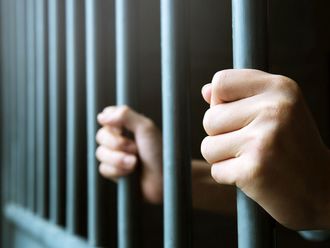Manama: A court in Kuwait on Tuesday sentenced two men, a Kuwaiti and an Iranian, to death on charges of spying for Iran and Lebanese militia Hezbollah and possessing weapons and explosives.
The Iranian was convicted by the criminal court in absentia, but the Kuwaiti was present in court.
The court pronounced sentences that ranged from five years to life in jail against the other suspects and acquitted four in the case that emerged in August.
The court confiscated the explosives, machine guns, ammunition, listening devices, maps, detonators, military uniforms, anti-bullet vests and knives seized with the cell.
Judge Mohammad Al Duaij explaining the court verdicts said that the Kuwaiti sentenced to death was the mastermind of the plot and that he was a traitor who betrayed his nation. He was also accused of recruiting 14 “traitors”.
The verdicts on Tuesday come days after Kuwait and fellow Gulf Cooperation Council (GCC) member states condemned Iran for its interference in the domestic affairs of Saudi Arabia and for the attacks on the Saudi embassy in the Iranian capital Tehran and the consulate in the northern city of Mashhad.
The GCC comprises Bahrain, Kuwait, Oman, Qatar, Saudi Arabia and the United Arab Emirates.
On Sunday, Kuwait and fellow Arab League member countries expressed full solidarity with Saudi Arabia against Iran and called on Tehran to cease its negative and antagonistic stances against Arab countries and to put an end to its interference in the internal affairs of Arab countries.
The statement by the Arab League called on Iran to end its support to terror groups, including Hezbollah.
Kuwait last week recalled its ambassador to Iran, saying the decision was taken following “the storming, torching and sabotage activities carried out by a group of demonstrators on the Saudi embassy in Tehran and its consulate in Mashhad.”
The 26 defendants sentenced on Tuesday were referred on September 1 by Kuwait’s public prosecution to the court
The prosecution said that 24 of the defendants faced charges of engaging in acts likely to undermine the unity and safety of Kuwait and of intelligence with Iran and Lebanese group Hezbollah.
However, the Iranian embassy on September 3 downplayed the significance of the terrorist cell and the charges of espionage, saying that the case was a domestic Kuwaiti issue pertaining mainly to the discovery of weapons and ammunitions.
The embassy said it regretted the move to implicate Iran in the case and blasted Kuwaiti media for its “negative incitement against the Kuwaiti-Iranian relations” and for “targeting Iran based on flimsy charges, so far unproven by the judicial authorities.”
Iran’s Parliament Speaker Ali Larijani dismissed the Kuwaiti charges as senseless.
“Accusing Hezbollah of being implicated in the cell does not indicate rationality or wisdom,” he said. “It stems from the hatred against the party.”
Larijani’s remarks were rejected by the head of the Kuwaiti parliament’s interior and defence committee MP Abdullah Al Maayouf.
“Iran must tend to its own domestic affairs instead of interfering in those of others,” he said, accusing Iran of killing and torturing opposition members including politicians, chancellors, doctors and university professors who objected to forgery in the Iranian presidential elections.











